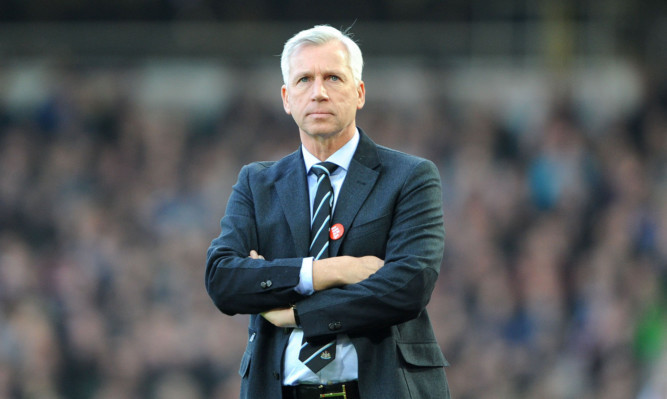
Why would Alan Pardew walk away from one of English football’s biggest clubs?
Why has he turned his back on the apparent security of the longest contract of any manager in the Premier League?
Why would he give up the safety of mid-table for a relegation struggle at a club with half the fan base, a basic ground and modest training facilities?
Pardew’s move from Newcastle to Crystal Palace is not a typical step on the managerial ladder at least not when taken voluntarily.
By any normal measure, he would appear to be going backwards. Of course, there’s the element of “going home” to consider.
Pardew played for Palace 128 times and retains a degree of cult status they still call him ‘Super Al’ after scoring the FA Cup semi-final winner against Liverpool back in 1990.
He’s very much a Southerner, having only ever played and managed south of Watford before his appointment at St James’ Park four years ago.
He retained a family home in Surrey throughout his time on Tyneside. While his commitment to the Magpies could never be questioned, there was always a feeling that he was an interloper.
The fans seized on his geographical roots, and used them as a stick to beat him with when things went wrong. He was accused of being part of Mike Ashley’s ‘Cockney Mafia’, which had also included Dennis Wise and Joe Kinnear.
They thought of Pardew as Ashley’s puppet a manager specifically employed to implement the owner’s business model. Pardew’s job was to keep the club in profit by developing cheaply-acquired players and to retain Premier League status and not to complain! In return, he was given an eight-year contract and the support of his bosses through some very testing times.
He survived almost taking Newcastle down the season before last, and the fans’ attempt to get him ousted earlier this season when sackpardew.com was printing its leaflets.
He was also backed when he was given a stadium ban for headbutting Hull’s David Meyler, when he pushed a linesman and when he verbally abused Manuel Pellegrini.
Overall, Pardew actually did a very difficult job pretty well. Statistically his record is bang average 71 wins, 73 defeats but when your best players always get sold from under you, average sometimes equates to success.
So what has changed this season to make Pardew consider his downward step?
To begin with, there was the suggestion that the constant criticism was beginning to affect his family.
He said at its height: “I’m resilient to it. The effect on my family and friends worries me a little bit, though. It’s a difficult scenario, particularly for family. It’s not nice for them.”
Weariness may also have been a factor. In good times, he was only ever given grudging credit, while when things went wrong he always got the blame. There’s only so long you can tolerate that.
Pardew is an astute political operator, and he may have seen difficult times ahead for Newcastle. Another star player Moussa Sissoko, for instance might be about to be cashed in on, or Ashley’s involvement with Rangers may have raised doubts about the club’s future direction.
It’s reported that Pardew’s salary will be higher at Selhurst Park, and with it will come a bigger input into transfers than he had at St James’ obviously significant ticks in the box.
If he can reproduce what Tony Pulis did when he was parachuted in a year ago, the Eagles will view the compensation agreed with Newcastle as money well spent.
Pulis earned a Red Adair reputation by dragging the club from bottom of the Premier League to 11th in half a season. When he left in the summer ironically over transfer policy he was always going to be the go-to man for any club needing someone to stop them going down.
After four months without a top-flight managerial change, Palace were the first to blink when they sacked Neil Warnock but a return for Pulis was never on the cards. West Brom, though, couldn’t resist.
Albion employ a Head Coach rather than a manager, and it remains to be seen how a traditional hands-on-everything boss like Pulis will handle that situation.
Meanwhile, back at Newcastle, Pardew’s Geordie assistant John Carver is talking about his dream job. It might happen too, at least until the end of the season.
Newcastle look relatively safe, he knows the club inside out and perhaps most important to Ashley he’ll be cheap.

Enjoy the convenience of having The Sunday Post delivered as a digital ePaper straight to your smartphone, tablet or computer.
Subscribe for only £5.49 a month and enjoy all the benefits of the printed paper as a digital replica.
Subscribe